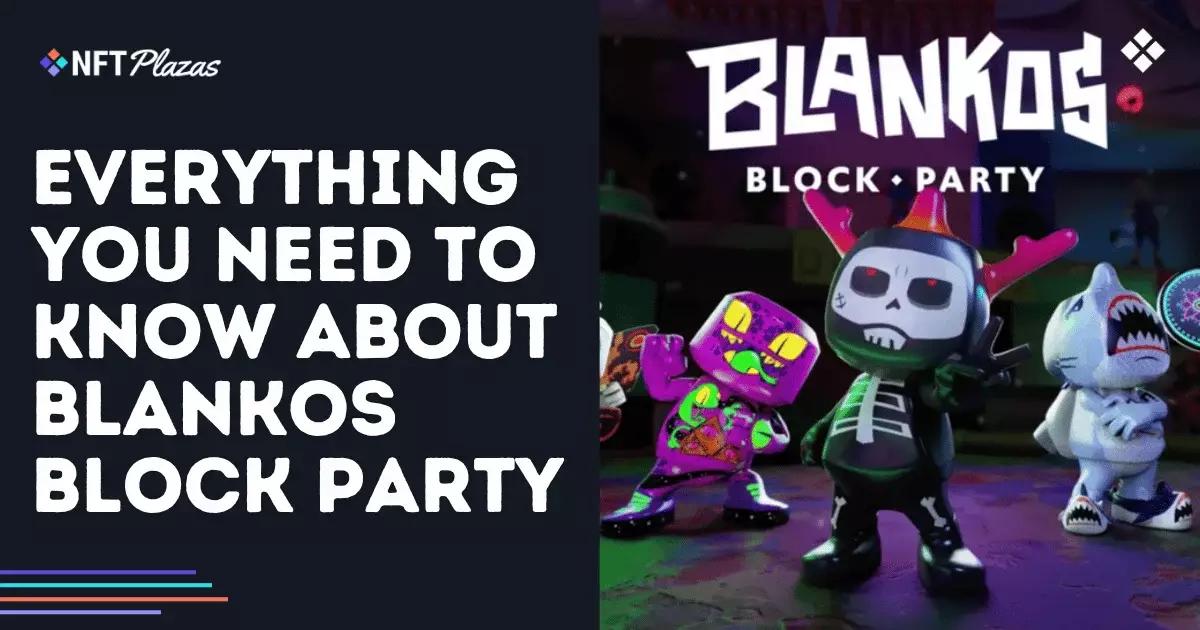Blockchain gaming emerged as a bold frontier, promising to reshape the digital entertainment landscape with ideas of true ownership, economic opportunity, and decentralized creativity. Titles like Blankos Block Party symbolized this ambition—claiming to marry the vibrant appeal of multiplayer games with blockchain’s revolutionary potential. Yet, beneath the shiny veneer lies a mounting frustration: the technology, touted as a game-changer, often seems more like a fleeting distraction than a sustainable innovation. The narrative of Blankos, once celebrated for pioneering “playable NFTs,” reveals the harsh reality of how lofty promises clash with operational challenges, market realities, and the fundamental conservatism of mainstream gamers.
This bold experimentation was arguably driven more by industry hype than by genuine user demand or technological maturity. While blockchain advocates consistently pitched it as democratizing ownership and empowering creators, the actual player base rarely needed or even understood the blockchain components—most transactions relied heavily on fiat, and crypto wallets remained optional, if not burdensome. This disconnect between lofty ideals and practical player habits underscores a fundamental flaw: genuine innovation in gaming cannot rely solely on new tech rabbit holes but must prioritize user experience and tangible value.
The Tepid Reception and Strategic Retreat
Initially, Blankos attracted significant buzz, with high-profile collaborations and enthusiastic media coverage. Its presence on mainstream platforms like the Epic Games Store gave it an aura of legitimacy, and timely partnerships with brands like Burberry and Deadmau5 showed potential for integrating luxury, entertainment, and blockchain. The game’s creative features, especially user-generated content and resale royalties, hinted at a future where players could genuinely monetize their efforts. These elements infused the game with a sense of “authentic” ownership—something that blockchain enthusiasts repeatedly championed.
However, the euphoria evaporated quickly as operational hurdles, regulatory ambiguities, and limited actual utility became apparent. The decision to sunset the PC version in late 2023—claimed to be a strategic move to target mobile growth—highlighted a sobering reality: blockchain games remain financially fragile and strategically risky devices, especially on platforms that are wary of cryptocurrency integrations. Mythical Games’ pivot reflects a pragmatic retreat from the ambitious vision that many had for blockchain’s disruptive potential. Despite the hype, the cold data shows that most users preferred traditional, fiat-based transactions. Only a small minority invested in the crypto elements, and that slowly diminished interest illustrates that blockchain’s role, rather than revolutionizing, often complicates the gaming experience.
The migration to Polkadot, aimed at better technical performance, underscores the persistent technical fragility of blockchain-backed titles. While the move promises faster, cheaper transactions—necessary improvements—these are mere technical band-aids that do not address the core issue: mass market appeal. The move also reveals something more profound—companies are choosing to leverage blockchain for backend efficiencies and potential interoperability rather than for genuine player empowerment or initial innovation.
False Promises and the Reality of Market Adoption
The central narrative that blockchain could introduce a new era of player-driven economies and true in-game ownership has, time and again, proven to be more aspirational than practical. The experience of Blankos demonstrates that players are inherently risk-averse and pragmatic, especially when it comes to spending real money on digital assets that might not retain value or even be tradable outside the game.
Furthermore, the core problem with blockchain gaming’s narrative—its reliance on an assumption that players want to be digital investors—remains unfulfilled. The majority’s reluctance to adapt to the complexities of crypto wallets, security concerns, and market volatility illustrates how entrenched traditional gaming values still hold sway. Despite early signs of hope, blockchain-based assets like NFTs struggled to become more than expensive collectibles or social tokens, often exacerbating rather than alleviating economic inequalities and creating environments ripe for speculation rather than genuine gameplay enhancement.
The limited adoption of blockchain features, with 85% of transactions still denominated in fiat, identity a crucial disconnect between the technology’s potential and its real-world application. Developers continue to chase the elusive ideal of digital ownership while neglecting the fundamental need for seamless, intuitive gameplay. This gap between promise and practice hampers the promise of blockchain gaming becoming mainstream—something it has failed to accomplish despite years of hype and initial investment.
What’s Next for Blockchain in Gaming? A Cautionary Outlook
The strategic move by Mythical Games to focus on mobile platforms and interoperability reflects a begrudging acknowledgment that blockchain gaming’s future is anything but assured. While the idea of hybridized ecosystems—where blockchain assets could flow between different titles or external marketplaces—offers exciting potential, it remains largely aspirational rather than operational. Current blockchain infrastructure is still in its infancy, and questions about security, scalability, and regulation are far from settled.
The push to mobile is understandable; a billion-dollar market awaits, but also one laden with regulatory hurdles and skepticism. Building a blockchain-powered game tailored for mobile, with simplified controls and tailored content, could be a winning formula if done correctly. Still, success hinges on reconciling two conflicting truths: that most gamers seek fun, immersive experiences free from external complexities, and that blockchain’s intrinsic value proposition hinges on rarity, ownership, and economic stakes.
The reality remains that blockchain gaming’s initial promise—to democratize ownership and create new economies—is yet to materialize into widespread player engagement. For all its grand ideas, the space continues to be mired in technical shortcomings, limited user adoption, and ongoing moral questions about speculation and digital scarcity. As the industry marches forward, a sobering truth is emerging: blockchain might be better suited as a supporting technology rather than the beating heart of gaming’s future. Without a fundamental shift in how players perceive value—beyond shiny collectibles or speculative assets—the promise of “revolutionary” gaming remains stubbornly out of reach.


Leave a Reply